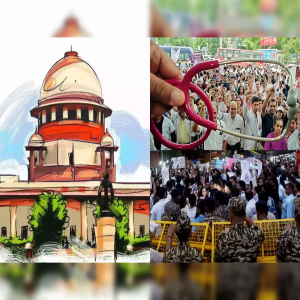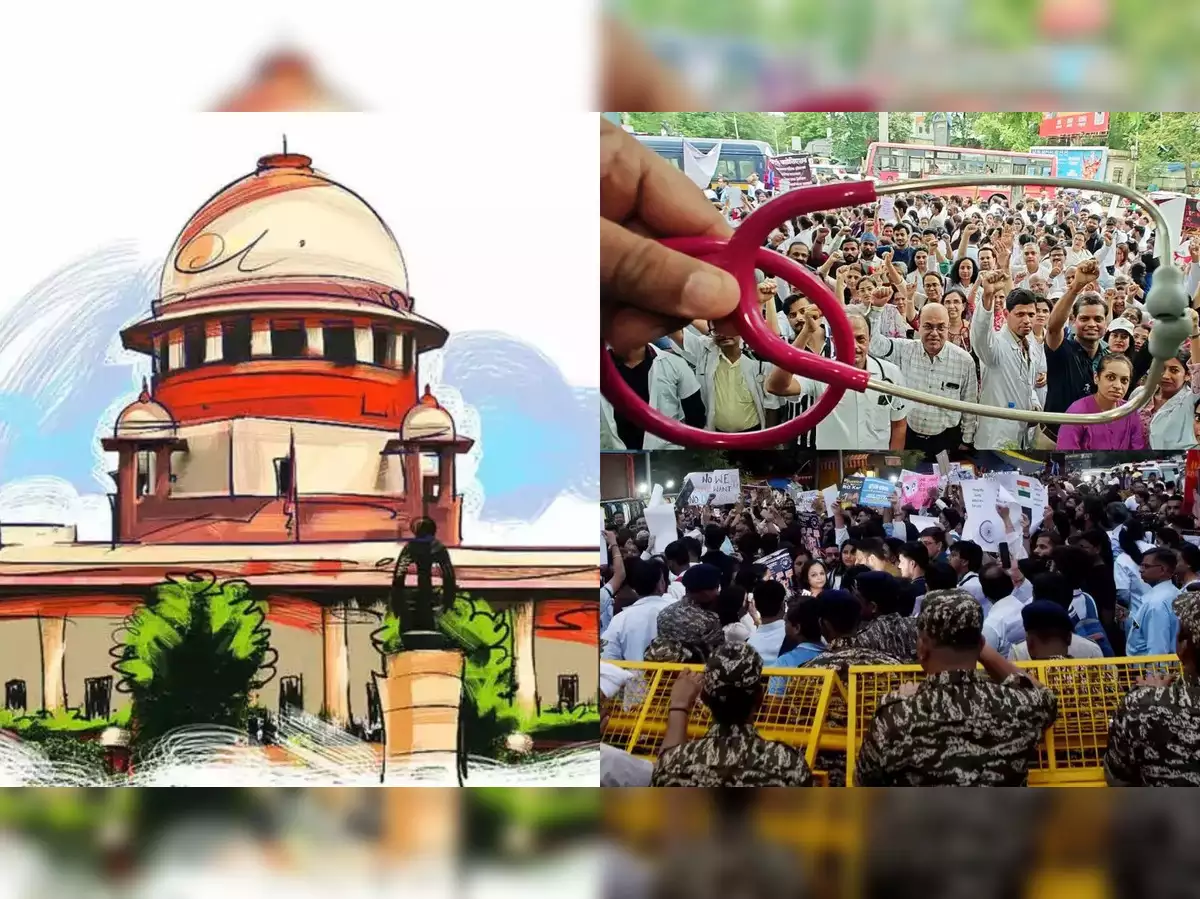
.png) Jacob Peenikaparambil
Jacob Peenikaparambil

Three cases of brutal rape and murder of three women in three states of India were reported in the first three weeks of August. Although these three cases got wide publicity in the media, there were also many unreported cases. Most prominent among the three cases is the rape and murder of the 31-year-old post-graduate trainee doctor at the RG Medical College and Hospital in Kolkata. The Supreme Court of India has taken it as a suo motu case and has given a slew of instructions to the authorities concerned. In the words of SC judges, "it has shocked the nation's conscience". The top court has set up a 14-member National Task Force (NTF) to evolve protocols to prevent sexual attacks and other kinds of attacks on medical professionals.
The second case is the rape and murder of a 14-year Dalit girl in Bihar's Muzaffarpur. According to the media reports, the girl was raped and murdered by Sanjay Rai and his aids after the victim's family rejected his proposal of getting married to the teenager. In the FIR filed, the girl's mother alleged that Rai, who was married with three children, wanted to marry his teenage daughter. A day before the crime, he had threatened the family with dire consequences for turning down his marriage proposal.
The third case is the rape and murder of a nurse of a private hospital on the border of UP and Uttarakhand. According to the police, the 33-year-old woman used to work as a nurse in a private hospital on Nainital Road in the Rudrapur area of US Nagar. She went to work on July 30 but didn't return home. The next day, her sister filed a missing complaint at Rudrapur police station as she hadn't returned the previous night. On August 13, the US Nagar police of Uttarakhand arrested a man from the Jodhpur area of Rajasthan for the alleged crime of rape and murder. The Uttarakhand Police also constituted a Special Investigation Team (SIT) to investigate the case.
Besides these three cases, a woman resident doctor was allegedly assaulted by a patient and his relatives, who were all in an inebriated state, at Mumbai's Sion Hospital on Sunday, August 18. This came amid growing outrage over the horrific rape-murder of the trainee doctor at RG Medical College and Hospital in Kolkata.
The reports published by the National Crime Records Bureau (NCRB) present a picture of various crimes in India, including crimes against women. According to the NCRB report 2022, 4,45,256 cases of crime against women were registered in 2022, an increase of 4% compared to 4,28,278 in 2021. This translates to nearly 51 FIRs every hour. The crimes against women include kidnapping and abduction of women (19.2%), assault on women with intent to outrage her modesty (18.7%), rape (7.1%), and 13,479 cases under the Dowry Prohibition Act. The other crimes against women include female infanticide, sexual harassment, acid attacks, domestic violence, etc. According to the NCRB report 2022, Uttar Pradesh, Maharashtra, Rajasthan, West Bengal, and Madya Pradesh are the states where the largest number of crimes were registered.
There could be various factors responsible for the increase in crimes against women. Although there are many laws to deal with the crimes against women, what is lacking is their proper implementation. After the Nirbhaya case in 2012, the Criminal Law Amendment Act of 2013, commonly known as the Anti-rape Act, brought about substantial changes in the legal landscape. This law expanded the ambit of rape by incorporating new offences such as stalking, acid attacks, and voyeurism into its definition. Madhya Pradesh was the first state in India to enact a law to provide capital punishment to those who rape children, but MP continued to report most cases of rape of minors as per the NCRB report 2020.
Lack of awareness and legal knowledge about laws, lack of inculcation of moral and ethical values in people, especially children, substance abuse that makes a person intoxicated and leads to a mental state in which he is not able to distinguish between right and wrong, and stigmatisation of victims are other factors that contribute to the increase in crimes against women.
Increased use of the internet and mobile phones have also added their share to the increase in crimes against women and girl children. The Indian Express, on July 28, 2024, reported that a 13-year-old boy allegedly sexually assaulted and killed his younger sister in Madhya Pradesh's Rewa district after watching a pornographic video.
Two factors that seem to be the root causes of increasing crimes against women are objectification of women and gender inequality along with gender discrimination. According to a report published by UNICEF-USA in January 2021, sexual violence is a consequence of a dehumanised perception of female bodies that aggressors acquire through their exposure and interpretation of objectified body images. When women are repeatedly objectified and their bodies hypersexualised, the media contributes to harmful gender stereotypes that often trivialise violence against girls and women. Advertisements, television shows, movies, music videos, printed media, and pornography all rampantly depict sexually objectifying images of women and thereby contribute to an increase in violence against women.
Women face discrimination in Indian society from the time of conception itself. Female foeticide is being resorted to despite having regulatory laws because of various misconceptions like a preference for male children, girls being considered as a burden upon parents, etc. It is reported that states like Haryana, Rajasthan, Maharashtra and Bihar have pre-natal sex determination clinics operating illegally.
In a patriarchal society like India, women are considered inferior to men in many communities. From childhood onwards, their freedom is restricted with regard to travel, education, choice of profession and choice of their life partners. Despite a ban on child marriage, thousands of child marriages are taking place in India every year. National Family Health Survey-5 estimates show that 23.3% of women in the 20-24 age group were married before they were 18. The main objective of love jihad laws passed by the BJP governments under the guise of preventing religious conversion appears to deny women their rights.
According to Manu Smriti, women have no right to choose their husbands in normal circumstances. Despite many progressive legislations, there is a long way to go to achieve gender equality in India. The literacy rate among women (64.63% in 2011) is lower than that of men (80.9% in 2011). According to the Periodic Labour Force Survey (PLFS), the labour force participation rate (LFPR) for men in India was 74.7% and 70.4% in urban areas during the April–June 2024 period, while the LFPR for women was 25.2% and 23.0%, respectively.
Women's representation in legislative assemblies and the Parliament continues to be very low. Currently, 15% of Lok Sabha MPs and 13% of Rajya Sabha MPs are women. No state has more than 20% women representation in its Assembly. Chhattisgarh has the highest representation, with 18% women MLAs, while Himachal Pradesh has just one woman MLA, and Mizoram has none.
Most religions discriminate against women in leading religious rites. Although women are more religious than men in almost all religions, men dominate in leading religious rites and making decisions. In the Catholic Church, women are not allowed to become priests and bishops. When the apostle Paul wrote: "The head of the woman is the man" (1 Corinthians 11:3), or "Let your women keep silent in the assemblies, for it is not permitted for them to speak" (1 Corinthians 14:34), he was simply expressing what was being practised in the society of his time. The same tradition is being followed with a few changes in the Catholic Church. Some Protestant Churches and the Anglican Church have started ordaining women as pastors and bishops. Religions, in general, have not contributed to gender equality, but their contribution has been just the opposite.
In order to prevent violent crimes against women in India, first of all, the laws related to women's safety and security are to be implemented strictly. It is not the lack of laws that is responsible for the increase in crimes against women; it is the lousy lack of implementation of laws.
Secondly, respect for the dignity of women should be safeguarded in advertisements, television shows, movies, printed media, etc. The presentation of women as an object is to be stopped.
The most important step is to inculcate in children and young people respect for the dignity of women through moral/value education. This process is to be started in families and continued in schools and colleges. If men in families do not respect women, children will not learn to respect women. Worship or veneration of the feminine in religions should lead to respect for women and gender equality.
Although Pope Francis did not concede the demand to ordain women in the Catholic Church, he has taken decisive steps to increase women's participation in the church's governance. He appointed women to two Vatican posts previously held only by men. French Sister Nathalie Becquart was appointed as co-undersecretary of the Synod of Bishops, which organises meetings of world bishops. Italian magistrate Catia Summaria was appointed to be the first woman prosecutor in the Vatican's Court of Appeals.
When people of all religions accept humanity as the greatest religion and see the Divine presence in every human being, their attitude towards other human beings, including women, will be one of respect and reverence, and that is the best way to stop monstrous crimes like rape and murder of women.